
I'm writing Distributed Systems with Node.js:bit.ly/34SHToF
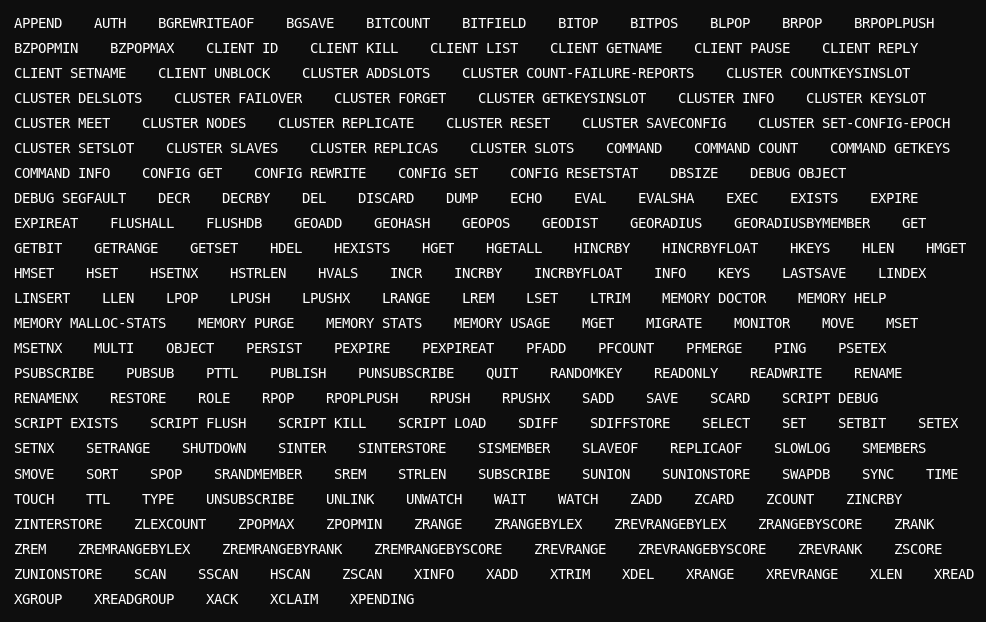
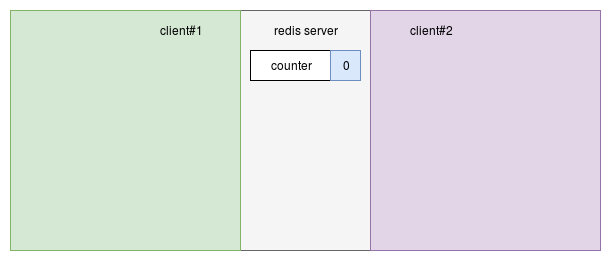
counter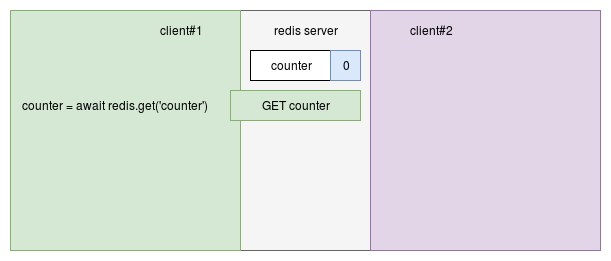
counter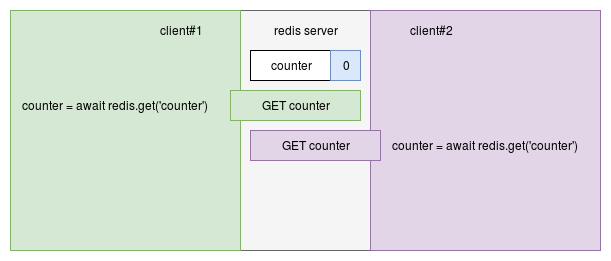
counter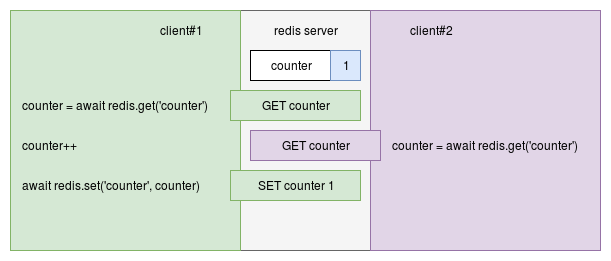
counter to 1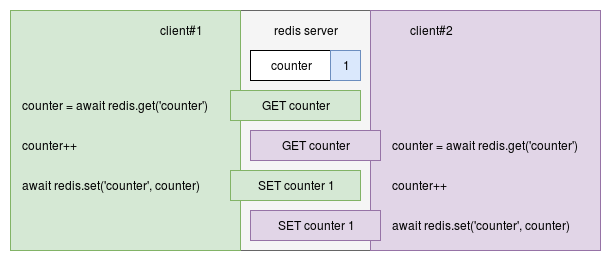
counter to 1INCR key # GET key ; ~value++ ; SET key ~value
SETNX key value # !EXISTS key ; SET key value
LPUSHX key value # EXISTS key ; LPUSH key value
RPOPLPUSH src dest # RPOP src ; LPUSH dest ~value
GETSET key value # GET key ; SET key valueINCR is an Atomic Increment
counterINCR is an Atomic Increment
counterINCR is an Atomic Increment
counterredis module usually does this anywayredis.batch()
.zrangebyscore('jobs', 0, now) // get jobs
.zremrangebyscore('jobs', 0, now) // delete jobs
.exec((error, data) => {
let jobList = data[0];
console.log('jobs', jobList); // perform work
});ZRANGEBYSCORE jobs 0 1000\r\nZREMRANGEBYSCORE jobs 0 1000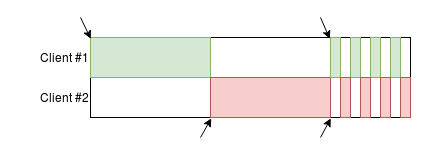
const redis = require('redis').createClient();
// run 10 instances of this process in parallel
let keys = [];
for (let i = 0; i < 100000; i++) {
keys.push(i);
}
shuffle(keys);
let pipeline = redis.batch();
for (let key of keys) {
pipeline = pipeline.hsetnx('pipeline', `k${key}`, process.pid);
}
pipeline.exec(() => redis.quit());> HGETALL pipeline
...
k46468: 25198
k67664: 25197
k62167: 25197
k5933: 25202
k19146: 25202
k202: 25196
k47418: 25198
k88650: 25202
...
echo "PING\r\nPING\r\nPING\r\n" | nc localhost 6379
+PONG
+PONG
+PONGMULTI, more commands, EXEC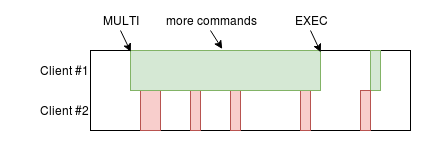
redis.multi()
.zrangebyscore('jobs', 0, now) // get jobs
.zremrangebyscore('jobs', 0, now) // delete jobs
.exec((error, data) => {
let jobList = data[0];
console.log('jobs', jobList); // perform work
});MULTI
ZRANGEBYSCORE jobs 0 1553099335332
ZREMRANGEBYSCORE jobs 0 1553099335332
EXECEVAL command
SCRIPT LOAD ahead of time
EVALSHA to run code via resulting hash-- add-user.lua: add user to lobby, start game if 4 players
local lobby = KEYS[1] -- Set
local game = KEYS[2] -- Hash
local user_id = ARGV[1] -- String
redis.call('SADD', lobby, user_id)
if redis.call('SCARD', lobby) == 4 then
local members = table.concat(redis.call('SMEMBERS',lobby),",")
redis.call('DEL', lobby) -- empty lobby
local game_id = redis.sha1hex(members)
redis.call('HSET', game, game_id, members)
return {game_id, members}
end
return nilconst redis = require('redis').createClient();
const rEval = require('util').promisify(redis.eval).bind(redis);
const script = require('fs').readFileSync('./add-user.lua');
const LOBBY = 'lobby-elo-1500', GAME = 'game-hash';
(async () => {
await rEval(script, 2, LOBBY, GAME, 'alice');
await rEval(script, 2, LOBBY, GAME, 'bob');
await rEval(script, 2, LOBBY, GAME, 'cindy');
const [gid,plyrs] = await rEval(script, 2, LOBBY, GAME,'tom');
console.log('GAME ID', gid, 'PLAYERS', plyrs.split(','));
})();@tlhunter@mastodon.socialbit.ly/34SHToFbit.ly/redis-atomicity